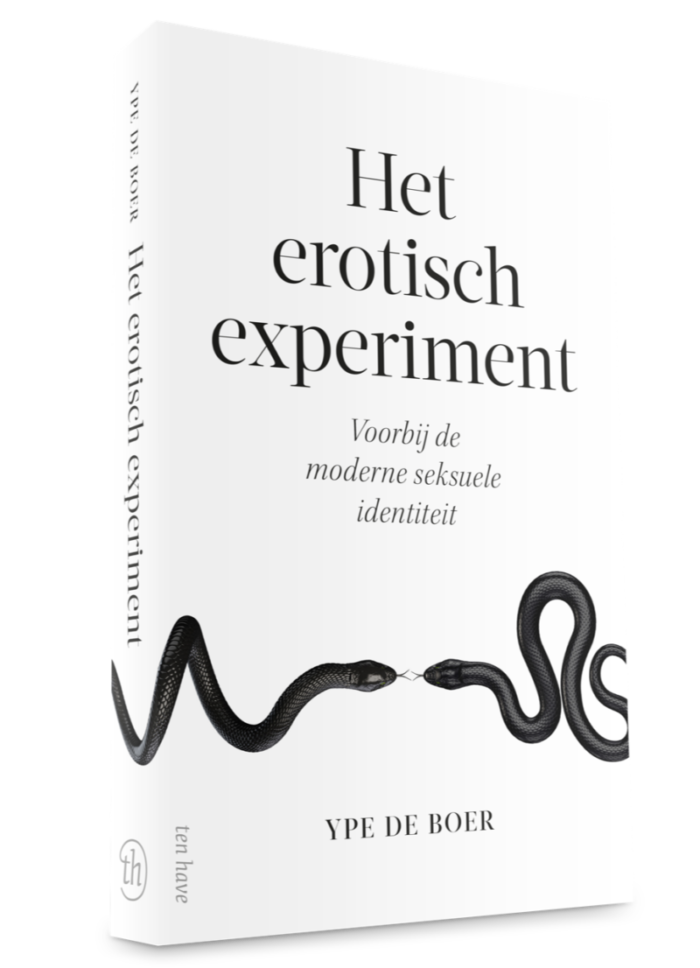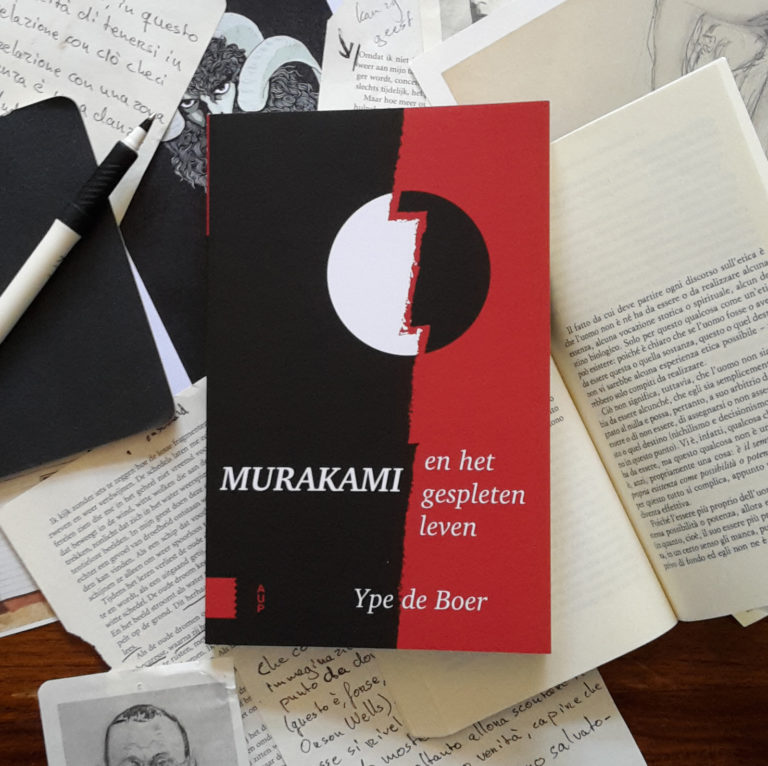

Sinds de seksuele revolutie voelen we ons op seksueel gebied vrijer dan ooit. Toch is het de vraag in hoeverre we dit ook daadwerkelijk zijn. In Het erotisch experiment schetst Ype de Boer het wereldbeeld waartegen onze seksuele activiteiten zich afspelen. De manier waarop wij ons lichaam, onze lust en onze verlangens ervaren blijkt behoorlijk eendimensionaal te zijn.
Om de moderne erotische leefwereld open te breken, verkent De Boer de vele gedaantes die het erotische aan kan nemen. Het resultaat is een filosofisch experiment met kunst, literatuur en levensvormen uit andere culturen, waarbij uiteindelijk niets minder dan de Idee van het erotische op het spel komt te staan. Het boek neemt ons mee in een ervaring die zowel denken als leven op zijn kop zet.
Nieuwsgierig? Lees hier een interview in Trouw en hier De Boers opiniestuk in Het Parool of Koop hier het boek.
Murakami en het gespleten leven
Haruki Murakami heeft de wereld betoverd met zijn indringende literatuur. Hoe komt het dat zijn verhalen zoveel mensen raken? Alleen omdat ze spannend en goed geschreven zijn, of spreekt de Japanner ook op een dieper niveau aan?
Ype de Boer laat zien dat Murakami’s verhalen ons iets kunnen leren over een fundamentele gespletenheid in het menselijk bestaan. Deze originele bespreking van Murakami’s alledaagse helden, magische figuren en droomachtige sferen nodigt uit om Murakami’s fictie op het eigen leven te betrekken, en werpt nieuw licht op thema’s als identiteit, verantwoordelijkheid, zelfkennis, verbeelding, liefde, vrijheid en lot.
Nieuwsgierig? Lees hier een sneak preview of koop hier het boek.
In de media
Kijk hier het Brainwash filmpje over Murakami
Kijk hier de filmpjes die Filosofie Magazine over Murakami en het gespleten leven opnam
Luister hier de bespreking op Radio4, hier het interview met Ype bij Nieuwsweekend en hier de reportage die Nooit Meer Slapen erover maakte
Lees hier het interview Ad Valvas
Lees hier het interview in Filosofie Magazine
Lees hier het interview in HP de Tijd
Lees hier de recensie in het ANTW
Lees hier de recensie plus het interview in Nederlands Dagblad